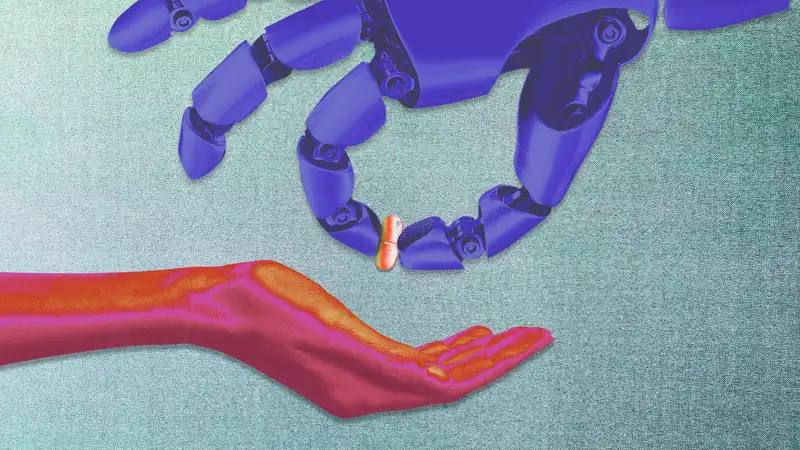Is "Rowbot" the Future of Abortion Access?
Today, the Supreme Court heard oral arguments in FDA v. Alliance for Hippocratic Medicine.
The decision, scheduled for June, could jeopardize access to "abortion pills." That is how many people rely on reproductive medicine: but while the justices were listening to the arguments, workers and volunteers from Aid Access, a nonprofit that provides access to medical abortions by mail, dispensed mifepristone outside the Supreme Court by dispensing so-called "Rowbots," which are deployed. The robots were remotely operated by AID Access providers living in "shield law states," which are legally protected from anti-abortion laws.
"The whole point of the robot, in addition to calling attention to the shield laws and legal loopholes we can take advantage of, is that it literally doesn't matter what happens in the Supreme Court or what happens in the future: we provide people with the care they need," Aid Access researcher and volunteer Mira Michels says. We don't want people to feel alone. It can be very scary to find yourself with an unwanted pregnancy. We want people to know that we are there, whether it's through a robot, in person, or through the mail."
"We want people to know that we are there.
According to observers, based on Tuesday's arguments, it appears that the court was "skeptical" of the case brought against the FDA (primarily that mifepristone is unsafe and not properly studied). [As former federal prosecutor and MSNBC legal analyst Joyce Vance wrote in X, "The Mifepristone lawsuit appears to have no legal basis and is rightfully dismissed," Abortion On Our Own Terms campaign director Nancy Cardenas Peña adds: "Mifepristone has been on the market for over 20 years and used by millions of Americans. It is my sincere hope that the Supreme Court will follow the science and decades of evidence, rather than advancing a political agenda for a nationwide abortion ban."
But if the Supreme Court decides to ban Mifepristone or add barriers to access to Mifepristone, it will undoubtedly "make it more difficult" for those who need the abortion pill and "increase legal risks," he said, Cardenas Peña says.
"The important thing is that people who are considering self-administration with the pill have the information and resources they need," Cardenas Peña adds. People can call or visit the If/When/How free repro legal helpline for legal advice, get medical support from the Miscarriage and Abortion Hotline, and receive logistical support from Reprocare.
"There is an incredible legacy of women and people who have made this work possible and will continue to make it happen," said Michels, adding that Aid Access will lower the cost of medical abortion, provide additional assistance to those in need, queer and trans-inclusive care, and "provide It even offers what is known as "advanced abortion care. I assure you that I, the other volunteers, and many of the people I met with today, will continue to work tirelessly to make sure that abortion care is always there, no matter what."






Comments